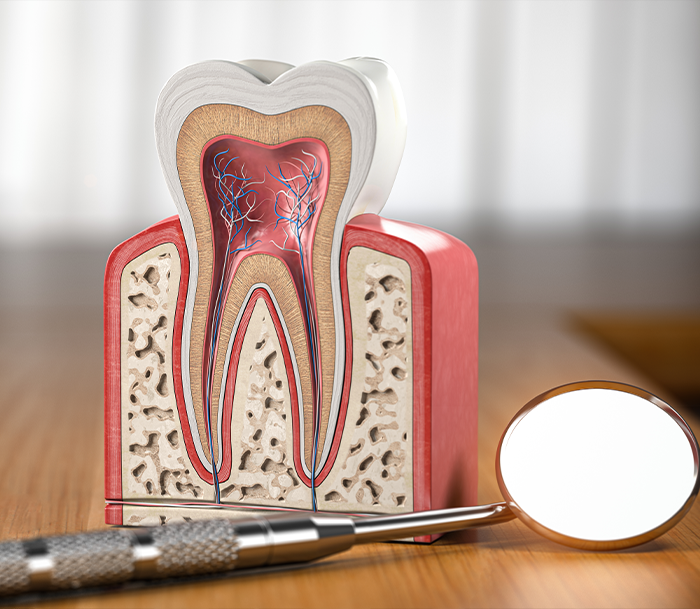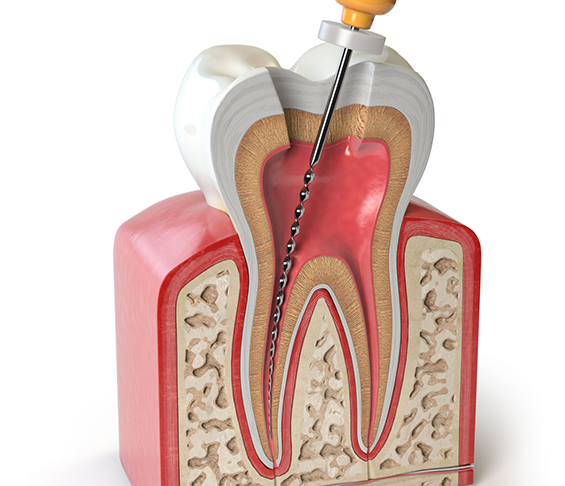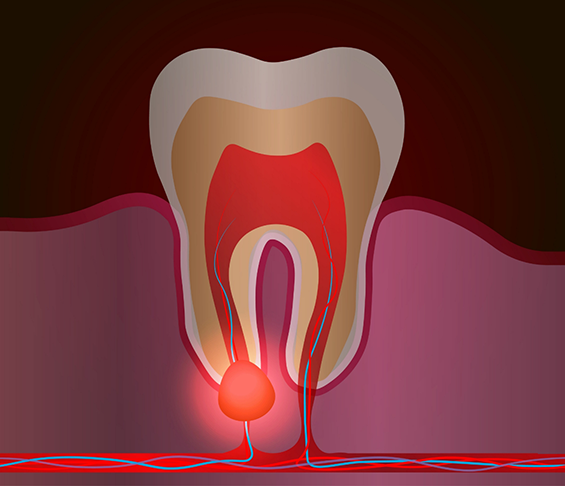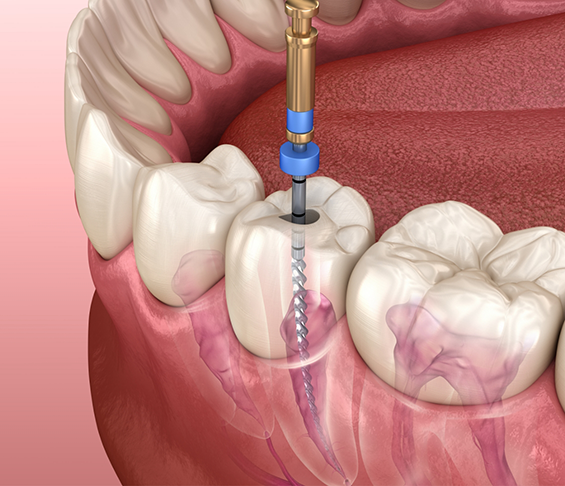Root Canal Treatment Bloomfield
Getting Rid of the Pain for Good

If you are nervous about undergoing a root canal, don’t be. Here at North Jersey Endodontic Group of Bloomfield, we target untruths by delivering a solution that not only eliminates the extreme discomfort – the pulp – but also allows you to keep your natural teeth and avoid extraction. Our team’s ability to improve the state of your smile and be free of pain is what makes us popular among local dentists and patients. If you’re interested in learning more about root canal treatment in Bloomfield, call our office to schedule an appointment.
Why Choose North Jersey Endodontic Group of Bloomfield for Root Canal Treatment?
- Advanced Imaging & Treatment Planning with Dental Technology
- Patient Comfort Is Prioritized by Dental Team
- Endodontists Provide Same-Day Treatment for Urgent Cases
Do I Need Root Canal Treatment?

The only way to determine if you require root canal treatment is to meet with one of our qualified team members who can thoroughly examine your mouth with the help of fully enhanced dental imaging.
Since this type of treatment requires the removal of any infected or damaged pulp inside your tooth, it’s important that we evaluate and prepare a plan quickly. Doing so will ensure the problem does not spread.
However, before you schedule an appointment with a member of our team, you may want to know what you should look for that might indicate the need for this type of treatment. If you discover any of the following signs, call our office right away:
- Persistent tooth pain
- A small pimple or bump that forms near the affected tooth, on the gums
- Enhanced tooth sensitivity
- Swollen or discolored gum tissue
- A damaged or significantly cracked tooth
The Root Canal Process

No root canal is performed without our team administering local anesthesia. This ensures that you remain completely numb throughout the procedure. Once satisfied, we’ll isolate the tooth with a latex dental dam to prevent moisture from reaching the affected area. When ready, we’ll make a small opening in the crown of the tooth and start to move the pulp while clearing our nearby chambers and root canals.
Once this is finished, we’ll fill the previously occupied space with biocompatible gutta-percha. This delivers the stability the tooth needs while it heals from the inside. After sealing the tooth off from further reinfection, a custom crown will be crafted and bonded into place after several weeks. This will give your tooth the protection it needs against future harm.
The Benefits of Getting a Root Canal

It may be hard to imagine the benefits of a root canal, but believe it or not, there are many. Apart from getting rid of the pain-causing pulp, this type of treatment also allows you to keep your natural tooth for years to come. By using some of the most advanced dental technologies and equipment available, there is no need for extraction when we can save your tooth with root canal treatment. Also, this procedure ensures that you’ll be able to resume eating, speaking, and smiling without any fear of discomfort, embarrassment, or uncertainty.
Understanding the Cost of Root Canals

If you’ve been prescribed a root canal by Dr. Whitmore, you may be curious about how much this procedure will cost. However, since each patient is different, it is difficult to provide an accurate price estimate until you come in for an exam. In the meantime, please feel free to review the following information to get a better understanding of how we determine pricing for your root canal in Bloomfield.
Factors That Can Affect Root Canal Cost

It is extremely difficult to determine the exact cost of your root canal until Dr. Whitmore has had the opportunity to examine the tooth or teeth in question. There are several important factors that may influence your total cost, including:
- The type and location of the tooth or teeth.
- The overall difficulty of the root canal procedure.
- If additional services like a new dental crown are needed
Is it Cheaper to Pull My Tooth?

In many cases, patients can be tempted to skip a root canal altogether and just have their damaged tooth extracted. While it’s true that extractions are typically less expensive initially, it is important to consider the long-term consequences of losing a natural tooth. Your bite can suffer negative consequences as your remaining teeth begin to shift out of place, which may result in difficulty eating and overall general discomfort.
To prevent this, Dr. Whitmore may recommend replacing the extracted tooth with a dental implant or dental bridge, which of course carry additional costs. All in all, it can be much more affordable to save your natural tooth than pay to replace it later. But don’t take too long to decide; the longer you wait to take care of an infected or broken tooth, the more likely you will need to have it extracted either way!
Does Dental Insurance Cover Root Canals?

Because root canal therapy is considered a major procedure, it is very common for dental insurance plans to cover anywhere from 50% to 80% of the cost after your deductible has been met. However, be aware that every plan is different, which is why it’s a great idea to confirm your coverage with your dental insurance company before beginning treatment. At North Jersey Endodontic Group of Bloomfield, we’ll be happy to assist you with this process.
At North Jersey Endodontic Group of Bloomfield, we are proudly in network with many popular dental insurance plans. Please visit our insurance page to see if yours is listed.
We’re ready to assist you with your root canal treatment and are happy to help you navigate the cost of your care. If you have any questions or concerns about paying for this procedure, please don’t hesitate to call us for further assistance.
Root Canal FAQs
How Long Does It Take to Recover from a Root Canal?
While recovery time from a root canal treatment differs for everyone, most patients find that they are able to return to work or school the very next day.
If your job requires physical labor, please try to take at least the next two or three days off, as vigorous activity can make the healing process take longer by diverting the blood from the site.
Your mouth will likely be sore for the next few days, so be sure to take your prescription or over-the-counter pain medication as directed.
During the healing period, be sure to eat only soft foods and chew on the opposite side of the mouth as the one that had the root canal.
You can brush and floss your teeth as normal but be sure to be extremely gentle around the treated tooth.
Should you experience any pain that worsens instead of fading after about three days (or any signs of infection such as a fever or swelling), please call us immediately.
How Much Pain is Normal After a Root Canal?
Although your root canal procedure itself shouldn’t hurt, it is normal to experience some discomfort and soreness over the next few days as you heal.
After the numbness from your procedure wears off, you’ll likely experience some mild pain and sensitivity, but this should only be temporary. Over-the-counter pain relievers such as acetaminophen and ibuprofen should be enough to handle this in most cases.
Be sure to avoid chewing any hard foods during the recovery period, as this may worsen your discomfort.
In most cases, the pain should begin to subside after about three days. If it doesn’t, please give us a call as soon as possible.
How Long Do Root Canals Last?
The great news is that root canals have an incredibly high success rate. In fact, most teeth that have been treated with a root canal go on to provide full chewing function for many years or even a lifetime!
The longevity of your root canal will depend on a variety of factors, including the extent of the damage to the tooth and how much time elapsed between placing your temporary crown and your permanent crown or filling. If too much time passes, your tooth could be vulnerable to reinfection.
To ensure that your root canal lasts as long as possible, be sure to follow Dr. Whitmore's post-op aftercare instructions and practice excellent oral hygiene.
Can I Take Antibiotics Instead of Getting a Root Canal?
While it’s true that antibiotics can treat bacterial infections in nearly every other part of your body, unfortunately they do not work on tooth infections.
That’s because to work, antibiotics must travel through the bloodstream to target infected areas of the body. Unfortunately, however, the bloodstream cannot reach the pulp of a tooth. Thus, they cannot eliminate an infection there.
If your tooth’s pulp becomes infected, the only option for treatment besides a complete tooth extraction is a root canal treatment.
